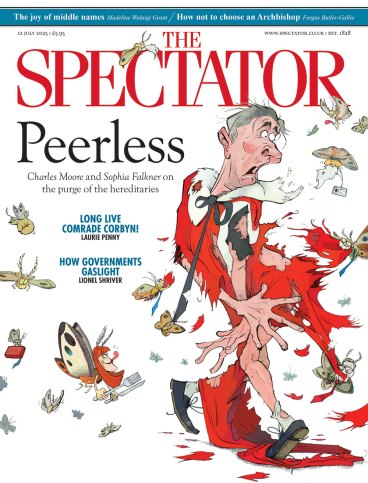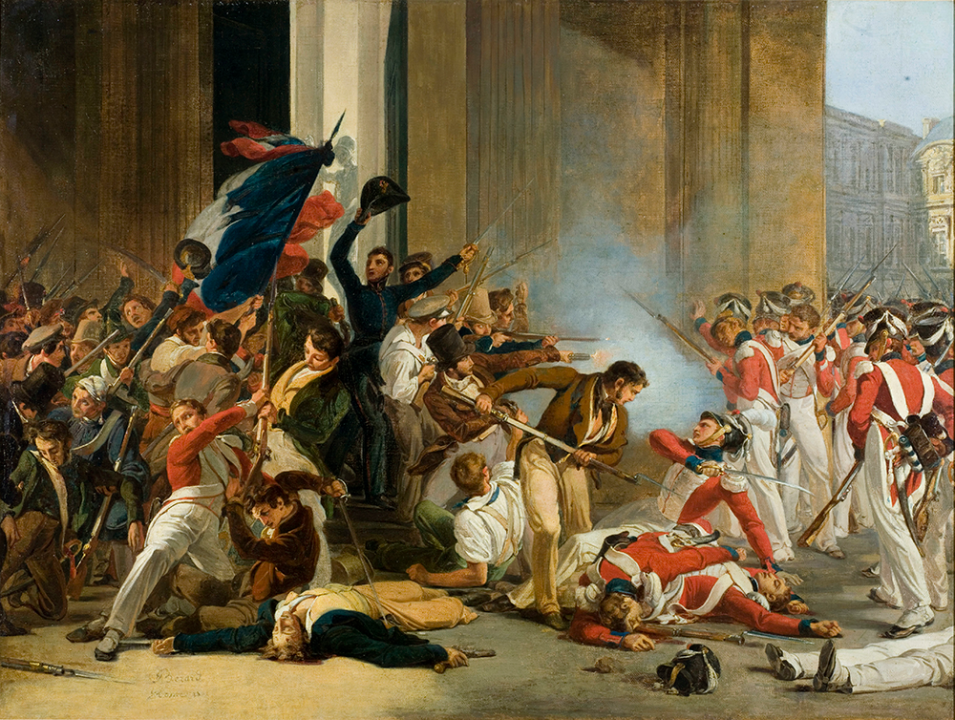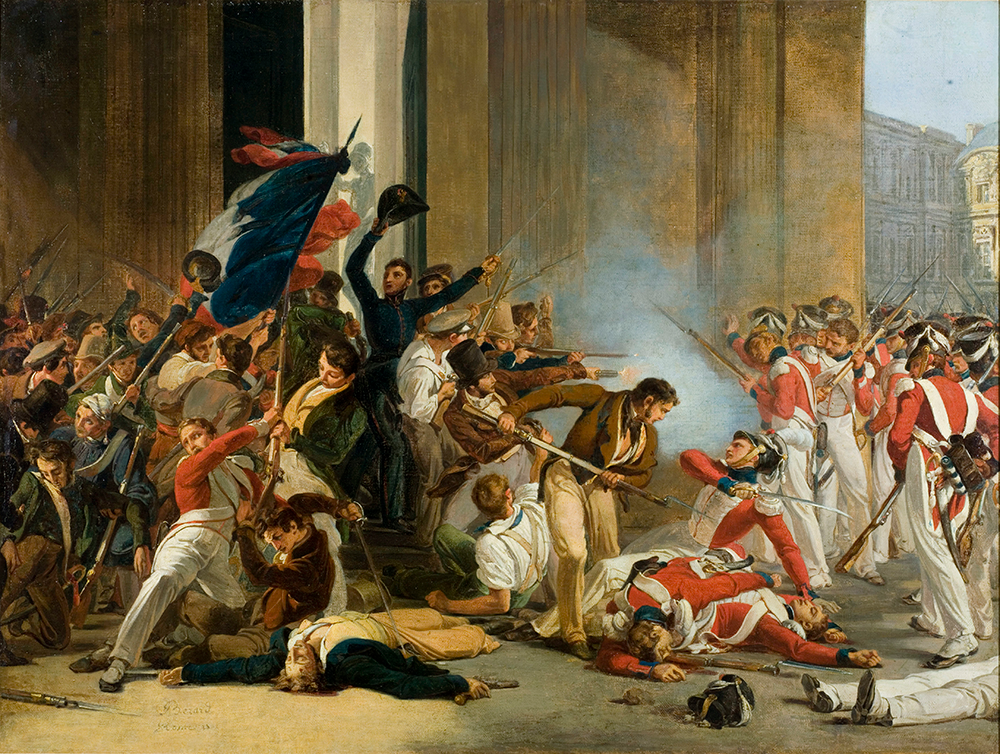
For Competition 3407 you were invited to write about a historical event euphemistic-ally. This challenge was a little vague; Private Eye code was the inspiration but from the tone of the entries it could have been 1066 and All That. The standard was very high, with too many runners-up to name names, and the £25 vouchers go to the following.
Life grew rather complex in 1789 when France experienced a regime malfunction. The financially embarrassed commoners, who kept popping their clogs due to nutrition deficiency, took against royals and aristocrats who did not rate highly on political awareness. Paying an unscheduled visit to the Bastille, the monarchy-resistant mob significantly devalued it as a property. Aristocrats decamped from Versailles like small, furry rodents making their way from a foundering vessel, while the royal family, not being the sharpest pencils in the box, were left without a steering mechanism on a waterway formed mostly of sewage. In the ensuing unrest around Paris, many of the upwardly mobile population were considerably downsized by the more republic-minded. Going against conventional wisdom, the royals left it too late to strategically retreat and were forced to cash in their chips with a trip to the rapid disposal unit that made them shorter by a head.
Janine Beacham
The court of Peter the Great was notable for how Badered everyone, including the Tsar, was, and for his retinue of vertically challenged persons, though Peter himself was something of a ceiling scraper.
There was even an official court personage of restricted growth named Iakim Volkov who found himself subject to a spectacular nuptial splicing at the iron whim of his Tsar. All pocket-sized Muscovites were seconded to Saint Petersburg to witness this happy event. These miniatures, having grown up in modest circumstances and consequently unaccustomed to fine dining, became tired and emotional upon becoming squiffy on the abundantly available enlivening beverages. Thereupon finding that they had various artistic differences, these space-efficient individuals sought to resolve them through a frank exchange of views. Unless historians have been economical with the truth, Peter the Great reacted to the resultant fracas by splitting his sides, always relishing a zany antic.Adrian Fry
The Early Retirement of William Wallace, 1305
As part of the retirement festivities, Mr Wallace, fashionably undressed, was urged to take an equine Uber to Smithfield, while the public offered loud tributes. Upon arrival, he was granted a performance review – at altitude – then carefully brought back down to receive his enhanced dismemberment package. In a gesture of administrative thoroughness, select personal assets were publicly decommissioned with fire. His abdominal storage was cleared in accordance with Crown compliance standards, contents displayed for transparency. Mr Wallace was subsequently divided into four travel-friendly portions and repurposed as inspirational installations in Newcastle, Berwick, Perth and Stirling. His head was preserved using traditional tar-based methods and promoted to a pointed post on London Bridge in line with the Crown’s redeployment policy regarding retired officials. Although Hollywood would later assign him an exclamatory farewell, contemporary sources suggest a quieter, more contemplative tone in his exit statement.
Ralph Goldswain
Julius Caesar was a nice-ish man, but sometimes prone to doing the full Tarquin Superbus, and a bit too Julian Clary with local soothsayers. They told him to take a half-holiday somewhere like Capri, and pronto monto. ‘You’re a bit light of future plans,’ they told him. ‘You’d be better off a bit more procul hinc, and a bit less usque ad finem.’ But Caesar was quietly MRGA, and even more Veritas Social – neglecting to imagine that the senators might well have raided their cutlery drawers for something that could take a quick route to the giblet aisle. They unfriended him, all 60 of them, with some searching internal investigations, ones that left him leaking badly next to Pompey’s statue.
They put the ruby into Rubicon, leaving Brutus, who gave three-way swivels a run for their silver denarii, to spend less time with his family.Bill Greenwell
Paris, 1151. Henry Plantagenet, Duke of Normandy, visits the court of much-loved Queen Eleanor of Aquitaine. It is their first meeting, but they soon become close friends. Eleanor is no stranger to the entente cordiale, having already forged rapprochements with Geoffrey of Anjou, Raymond of Poitiers and Marcabru the troubadour, becoming his Muse and the subject of his most celebrated Lays. Entering into top-level negotiations, Henry is curious to learn about the courtly customs of Eleanor’s native Aquitaine. She is happy to oblige, introducing him to the traditional technique of gentle grape-pressing. Henry imagines vineyards, corks popping along the Gironde Estuary, surf crashing in the Bay of Biscay. He chivalrously offers to show Eleanor his Norman cider press, and to take her up the Seine Valley. That night, during their detailed strategic summit, she encourages him to extend his increasingly substantial realm across the Channel. She is thinking of England.
David Silverman
The Third Crusade was one of a series of cultural exchange schemes – the Islamic equivalent was the jihad – in which westerners and those from the Middle East lived in each other’s countries for extended periods. Richard the Lionheart, a contact sports enthusiastic with an impressive record of wins when playing away from home, was a keen participant. His return trip was disrupted by hidden surcharges and he went dark until he retweeted a post from Blondel, a lounge singer passing through on a European tour; eventually Richard’s exit visa had to be crowdfunded. A believer in hands-off government, he nevertheless intervened on behalf of the Midlands Levelling Up Czar, Robin Hood, on his return, and latterly pursued a redistributive agenda in France where he developed many gated communities. He was eventually skewered by pointed local opposition to a repossession, and retired hurt. His brother, John, proved to be a poor substitute.
Nick Syrett
No. 3410: All grown up
You are invited to submit passages or poems about celebrated characters from children’s books in adult life (150 words/16 lines maximum). Please email entries to competition@spectator.co.uk by midday on 23 July.







Comments